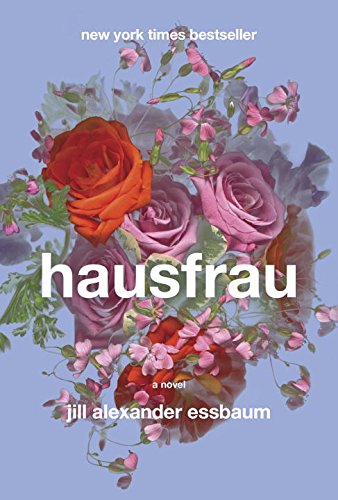The opening line: "Anna was a good wife, mostly," is an ironic one. Yes, Anna Benz is an American ex-pat married to a Swiss banker, living outside Zurich, and mother to three small children. She is, in fact, the housewife of the title. But she only becomes vibrant or shows any spark when she is sneaking off to have trysts with her various lovers. She frequently leaves the children in the care of her suspicious mother-in-law while she heads into the city to take German lessons (after almost a decade in Switzerland, she still can't really speak the language) and to meet with various men. She wanders through her own life apathetic and depressed. She only has two friends, neither of whom she really gives access to her life, leaving her completely isolated and alone. She has no outside interests other than illicit (although oddly perfunctory) sex. And even her affairs are arrived at passively, with the men pursuing and Anna simply acquiescing out of compliance and passivity.
The novel's narration is interesting. There is little chronological flow the story, episodes from the past and present jumbling together with bits of the language lessons Anna takes as well as excerpts from her therapy sessions. But strangely, this works. The pacing, however, doesn't work quite as well. The beginning, establishing Anna's automaton-like character is quite extended, with the consequences of this narcissistic half-life only being revealed in the last sixth of the novel. Even when the tension does ratchet up, there's still an emotional remove to the narration that make it difficult for the reader to connect to Anna, either in disapproving of her constant infidelities or by feeling sympathy for her tragedy or for her clearly overwhelming depression. As a character, Anna is frustrating in her lack of affect. She generally comes off as unlikable and detached even when the reader is told that she is in the depths of an emotional breakdown. Neither her husband nor her lovers come off as complex characters either, instead being merely indifferent or cold. And the suggestion that her friend who also conducts an extramarital affair is happy and charged up while the friend who is a loyal, non-cheating wife is naïve and immature is mildly offensive. The novel is disturbing on many levels, pervaded by an impending sense of doom and discovery, yet remains detached feeling despite some gorgeous turns of phrase. There are obvious parallels here to Anna Karenina and Madame Bovary but this does not carry with it the greater depth of cultural critique and import that those two novels did. Essbaum can write but this was ultimately a disappointment.
Thanks to the publisher for sending me a copy of this book for review.







Thanks for reviewing this book. Yours is the 2nd review I have read.
ReplyDeleteYeah I think I'd rather go back and read or re-read Anna Karenina and Madame Bovary then read this book, but I might be in the minority since everybody's seems to be talking about it. Cheers. http://www.thecuecard.com
ReplyDelete